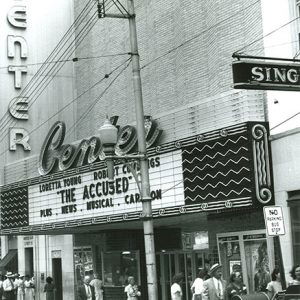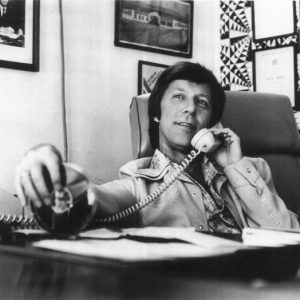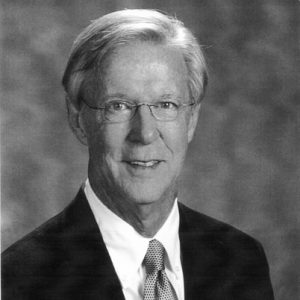calsfoundation@cals.org
Jim Skillern Porter Jr. (1932–2015)
In the early 1960s, Jim Skillern Porter Jr. was a leader in integrating the music venues in Little Rock (Pulaski County), and he produced Arkansas’s first integrated-seating concert. Later that decade, he operated Arkansas’s first integrated country club, the Riverdale Club, offering golf, tennis, swimming, dining, and dancing. (The name is not to be confused with Riverdale Country Club, whose members had previously moved west and formed Pleasant Valley Country Club.) During the two years the club was open (1968–1970), integrated groups played jazz nightly to full houses. Porter continued his work as a booking agent, trying to interest other venues in hiring integrated groups.
Jim Porter Jr. was born on September 1, 1932, in Little Rock to James Skillern Porter and Verla Menard. He had one sister. His father owned several businesses, including warehousing, moving and storage, and food distribution. Porter’s childhood was primarily spent with his grandparents. He attended public schools, graduating from Little Rock Senior High School (now known as Central High School) in 1950. He graduated from the University of Arkansas (UA) in Fayetteville (Washington County) in 1954, with a BS in business administration. He married Jo Ann Wilbourn on August 24, 1952. His second marriage was to Barbara Mullins, but that ended in divorce. His third marriage was to Lillian Turner on May 4, 1976. Porter has three children from his first marriage, as well as one stepdaughter and an adopted daughter.
Porter’s early career was working in the family businesses, in charge of sales and public relations, and doing volunteer work, such as serving as chairman of the United Way of Pulaski County and serving on the boards of the Donaghey Foundation, the Little Rock Chamber of Commerce, and the Little Rock Boys Club. Porter also served on the board of Union National Bank, which became part of Bank of America.
However, Porter was called to the music business—not as a performer, but as an agent and manager, and as a promoter of famous jazz artists. In 1957, he was starting his own production business when the desegregation of Central High began. Black artists refused to play in Little Rock due to concern for their safety, causing Porter to postpone his promoting plans and concentrate on building Arkansas’s only full-time booking and management agency, Consolidated Talent Corporation.
By 1960, Porter renewed his promoting efforts, going on to present such artists as Count Basie, Lionel Hampton, Dizzy Gillespie, Erroll Garner, Ramsey Lewis, Pete Fountain, Al Hirt, Stan Kenton, George Shearing, Harry James, the Four Freshmen, Woody Herman, Dave Brubeck, and Buddy Rich, in addition to Ray Charles and Louis Armstrong. However, Little Rock’s policies of segregation hindered the development of the music scene. For example, Duke Ellington cancelled a concert at Robinson Auditorium on August 26, 1961, with only five days notice, due to pressure from the National Association for the Advancement of Colored People (NAACP) and the auditorium’s refusal to allow integrated seating. After this, Porter and others approached the auditorium commission about reversing their policy of segregated seating, though the commission refused. By the time of the Louis Armstrong concert in September 1966, however, the auditorium had abandoned its unwritten segregation policy, and Armstrong played before a fully integrated sellout crowd.
From the late 1950s until his retirement in 2001, Porter was the foremost booking agent in Arkansas. From nightclubs to hotel lounges, from private affairs and society galas to festivals and fairs, Porter was the man to call for live entertainment. He represented bands playing every style of music: rock and roll, jazz, pop, country and western, big band, and more.
Porter not only brought a high level of professionalism to the music scene but worked in other aspects of entertainment as well. He started MusAd Recording Studio in 1970, which specialized in commercial jingles and provided space for bands to record demo tapes to send prospective buyers. Porter also ran the Hot Air Balloon Theatre, in what had been the Center Theater, located at 4th and Main in downtown Little Rock. This theater for children, running only G-rated films, also had a stage where live entertainment was provided between films.
Porter not only fought for equal rights for African Americans but also fought prejudice against those of Jewish faith. While serving as chairman of the United Way, he spoke against the exclusion of Jewish women from membership in the Junior League of Little Rock, resulting in the resignation of numerous members who agreed with him. The following year, a Jewish woman was invited to join.
Porter’s entertainment career was not just in music. In the mid-1980s, he hosted two TV shows. The After Five show ran on local Channel 18, featuring Porter in various restaurants and bars, interviewing happy hour customers, managers, bartenders, waiters, and waitresses. Scene Around ran on KLRT, Channel 16, and featured Porter attending various charity balls and society functions, interviewing chairmen of the events. He also wrote two columns under the same names for the Arkansas Democrat during most of the 1980s, along with an award-winning supplement titled “Arkansas Dining & Entertainment Guide.” Porter was also featured on a weekly radio program, also called After Five, describing various places to go for dining and entertainment.
Porter’s honors include appointment to the Arkansas Entertainers Hall of Fame Board in 1996, induction into the Entertainers Hall of Fame in 2005, appointment to the Martin Luther King Commission in 2005, and induction into the Arkansas Jazz Hall of Fame in 2006. Porter also served four terms as a member of the Quorum Court of Pulaski County (1998–2006). Porter lived in Little Rock all his life. He died there on September 3, 2015. He is buried in Mount Holly Cemetery.
For additional information:
“Arkansas Jazz Hall of Fame 2006 Inductees.” Arkansas Jazz Heritage Foundation. https://www.arjazz.org/artists/hof/2006/2006_jim_porter.shtml (accessed September 7, 2023).
Heard, Kenneth. “His Love of Music Broke Era’s Barriers.” Arkansas Democrat-Gazette, September 5, 2015, p. 6B.
Porter, Jim S. “The Musical Integration of Little Rock.” Pulaski County Historical Review 53 (Fall 2005): 82–88.
Terry, Bill. “Making It in Music: Why Johnny Can’t Play and What Can Be Done about It.” Arkansas Times, February 1978, pp. 33–37.
Harry Snider
Little Rock, Arkansas
Tim Jones
Little Rock, Arkansas
 Center Theater
Center Theater  Jim Porter
Jim Porter  Jim Porter
Jim Porter 



(2015) A 2006 inductee into the Arkansas Jazz Hall of Fame, Porter was elected a director of the Arkansas Jazz Heritage Foundation (which sponsors and maintains the Arkansas Jazz Hall of Fame) for 2013-2014, 2014-2015, and 2015-2016.